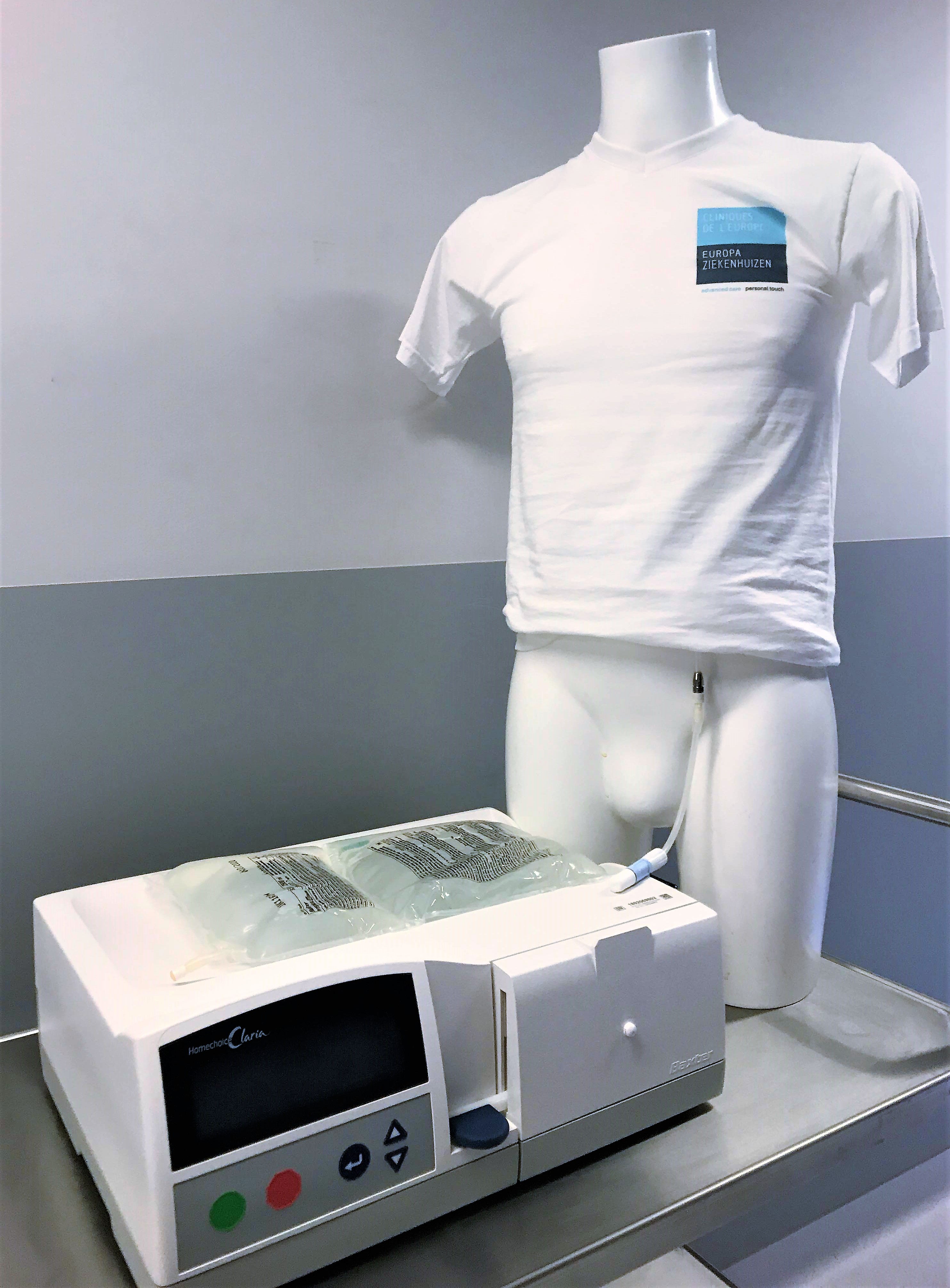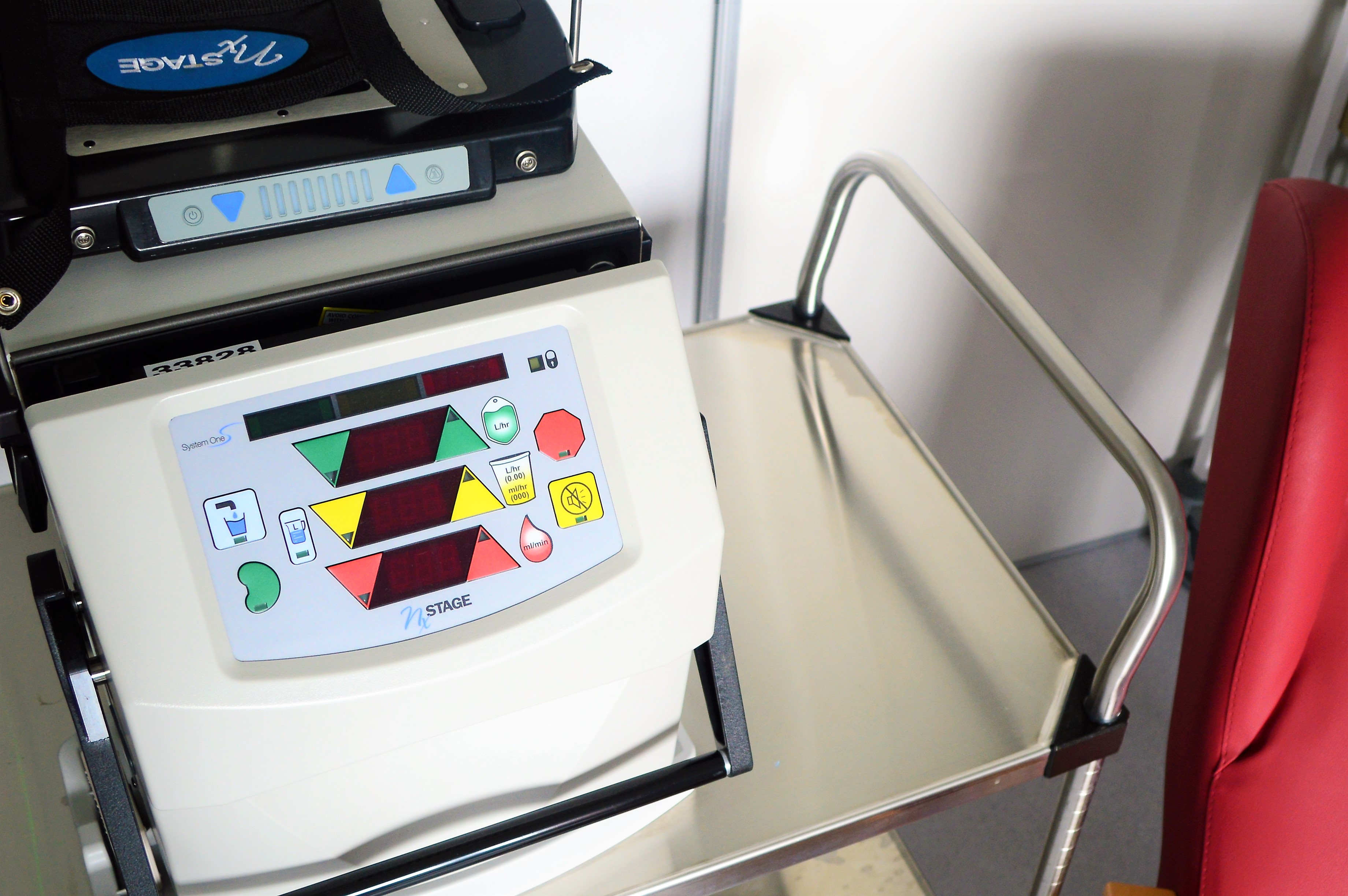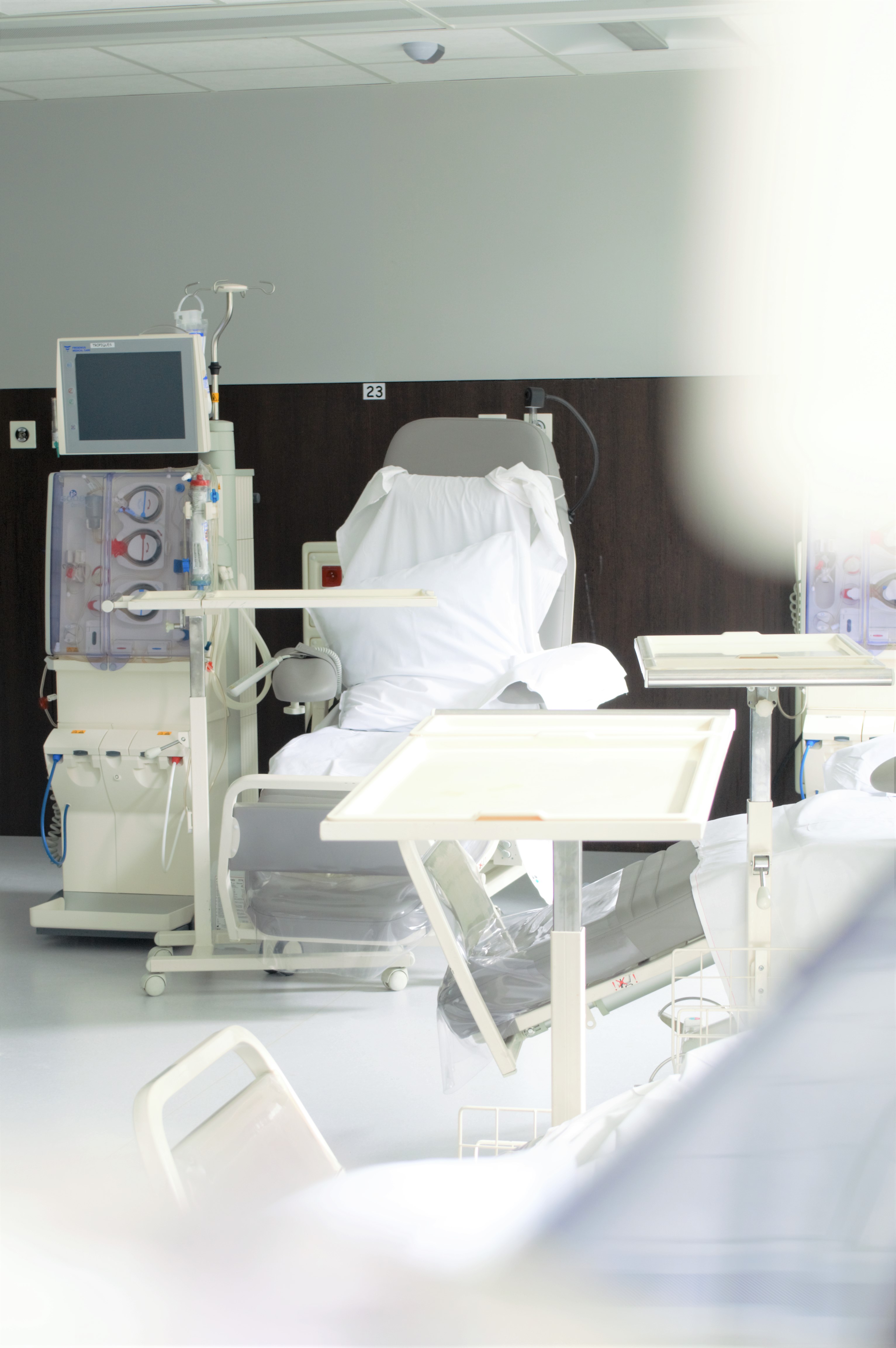Home Dialysis
Home Dialysis is a department within the dialysis unit that specifically focuses on the training and assistance of all patients performing dialysis in the home environment. This department is located at the St-Elisabeth site.
This department is made up of very experienced and motivated specialised nurses and nephrologists that strongly believe in the added value of dialysis in the home environment. In fact, certain types of home dialysis have demonstrated to give the patient an increased quality of life, compared to the classic haemodialysis at the hospital. In addition, there was also evidence of a better control of the complications resulting from the kidney disease.
Within the home dialysis service, we offer various techniques:
- Haemodialysis or blood dialysis at home
- With water treatment during the day or at night
- Without water treatment: NxStage
- Peritoneal dialysis, both during the day and at night
The final decision to opt for a specific technique is made depending on the patient’s lifestyle and medical condition. The attending nephrologist and specialist nurses at the Kidney Failure Center advise the patient in this choice.
Do not hesitate to contact us if you are interested in these techniques and would like additional information (02-614 21 80 ; homedia@euhos.be).
Peritoneal dialysis
what is it?
With peritoneal dialysis or peritoneal lavage dialysis, the peritoneum, which covers various organs in the abdomen, serves as a filter. A tube is used to insert a fluid into the abdomen. This fluid remains present in the abdomen for several hours. During this time, the blood is cleansed: the bodily waste and excess waters will end up in the abdominal fluid. After several hours, this ‘dirty’ fluid is removed and the blood is cleansed.
when?
This lavage is repeated several times every day. This technique may be applied both during the day and at night (with the aid of a machine).

where?
This treatment always takes place in the home environment or in the nursing home, whether or not with the assistance of a home nurse. Our team of specialised nurses will teach the patient the dialysis technique during a brief hospital stay. This training and monitoring always takes place at the St-Elisabeth site.
training
Once the treatment has been established, we monitor the patient every 4-6 weeks during a follow-up consultation, or earlier if needed. The medical team is available 24 hours/day in case of problems.
Home haemodialysis
Home haemodialysis means blood dialysis that takes place at home. The patient then has their own dialysis machine at home for treatment.
Home haemodialysis can take place either with a machine with water treatment (AK98) or with a machine without water treatment (NxStage). This treatment can take place both during the day and at night.
The frequency and duration of home dialysis varies from patient to patient: it depends on the patients’ needs and activities, determined by the nephrologist. Dialysis planning is more flexible than dialysis that takes place in hospital, because the patient is responsible for the treatment. They do not have to waste time travelling to the hospital.
Ever more studies show that this type of dialysis also provides a better quality of life and better control of the complications of kidney disease. Progress in technology has also made home dialysis machines more user-friendly and safer.
In consultation with the nephrologist, an assessment is made of whether a patient is a good candidate. Home haemodialysis is not always appropriate for every patient, as both the patient and home setting have to be suitable. After a number of weeks’ training at the St-Elisabeth site, treatment is started at home. After that, the patient returns to the St-Elisabeth site once every 4-6 weeks for a consultation. The home dialysis team is available 24 hours a day, 7 days a week in the event of a problem.
Auto-dialysis
Auto-dialysis is a form of haemodialysis that takes place in the hospital. The difference between auto-dialysis and traditional dialysis in hospital is that auto-dialysis has less nursing and medical supervision.
Patients get the chance to manage part of the treatment themselves. They can prepare the dialysis machine themselves and connect to/disconnect themselves from it, as they wish. Unlike home haemodialysis, they remain in the safe environment of the hospital and a nurse is always available to help them with problems.


